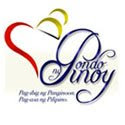May 10, 2005
After the PnP Launching last June 11-12 at the FAT, the Archbishop of Manila, His Excellency, Gaudencio B. Rosales and the Bishops of the Province of Manila have adopted the Pondo ng Pinoy movement as a priority Pastoral Program in the Ecclesiastical Province of Manila. Since this is a priority program, the component of the PnP movement is not simply the gathering of the crumbs being 25 cent to one peso, but what makes PnP strong among in its adherence is the catechetical component. One must be nourished by the Word of God, by education and by catechesis.
PnP PROGRAM COMMITTEE:
PnP organization has four different major committees: Executive, Program, Finance and Audit Committee. The Program Committee caries the load of moving the PnP in view of its progress and development chaired by Bishop Luis Antonio Tagle, together with Msgr. Gerardo O. Santos and Fr. Edwin Mercado.
The Education Committee is under the PnP Program Committee. On November 24, 2004, Education Committee was reorganized and divided into several groupings. It is now multi-sectoral and multi-disciplinary: multi-sectoral does not mean coming only from Catholic schools or institutions or public schools but those engaged in Adult Catechesis or Adult Religious Education, including the business sector.
Organization:
November 24, 2004 – Organization of PnP Education Committee
9th Flr., Pedro Calungsod Bldg,
3:00 – 5:30 PM
a. Groupings
b. Module Writing
c. PnP Program
d. Speakers’ Bureau
December 22, 2004 - PnP Education Com. Meeting
6th Flr.,
February 8, 2005 - PnP Education Com. Meeting
6th Flr.,
May 3, 2005 PnP Education Com. Meeting
6th Flr.,
- Final Report and Submission of Modules
The MODULE WRITING - each group will be responsible for producing modules for their own sector in order to contain every thing according to needs: from writing, to production and to pilot testing. The modules for 2005 were identified, to be launched this year.
- Integrate the chapter 6 of the “Aral ng Batangueño” especially page 73, as suggested by the Archbishop, which is liberating from and liberating to become. Integral evangelization is holistic as mentioned earlier.
- The focus of the Integral Evangelization Development as emphasized by the Archbishop Gaudencio B. Rosales, is the fullness of life (chapter 6) – to be put in the framework of JPIC – Justice, Peace and Respect for the Integrity of Creation.
- The Focus for 2005 is John 10:10 – “I came that they may have life and have it to the full.”
PnP three major modules:
A. School based Module –
B. Community (Parish Based) -
C. Work Force Communities
References for Module Writing:
1. Encyclical: Populorum Progressio –
2. Aral ng Batangueño by Archbishop Gaudencio B. Rosales
PnP Program as envisioned by the Archbishop Gaudencio B. Rosales:
“Development, Progress or Fullness in life is nothing but the liberation from anything
(and everything) that enslave the human person.”
| What enslaves the human person | What liberates the human person |
| Ignorance | Education and Knowledge |
| Poverty | Noble and righteous livelihood |
| Sickness | Healthy lifestyle and practice |
| Unjust and Selfish attitudes | Education and family training |
| Selfish Values | Family/social training & example; Religion |
| SIN | JESUS CHRIST! |
It is not only giving but at the same time to be nourished by it.
- Archbishop Gaudencio B. Rosales approved that the next year’s focus will be the Pope’s Encyclical “Populorum Progressio” - as the primary document. This encyclical has to be deepened in the context of adult catechesis and globalization.
- To talk about globalization also in schools - in this context, we proclaim the gospel “Evangelize globalization.” Globalization is the Language of neo capitalism, the language of the politicians, businessmen, economists and technocrats.
- ‘Populorum Progressio’ presents an alternative to globalization.
The Modules’ themes for the next years will be based on the basic tenets of the church’s Social Doctrines are:
1. Integral Development – Human Dignity and Solidarity
2. Respect for Human Life
3. Social Nature of Human Person and Human Equality
4. Universal Purpose of Earthly Goods and Private Property
5. Social Justice and Love (Solidarity and Subsidiary)
6. Association and Participation (Family Life)
7. Preferential Protection for the Poor and Vulnerable
8. Peace and Non- Violence
9. Value of Human Work
10. Integrity of Creation
11. People Empowerment
12. Common Good Inseparable from Good of Persons
The Education Committee Members according to GROUPINGS/CLUSTERS/SECTORS:
I-SCHOOLS (FR. VENUS / SR. ANDY)
a. Public Schools – ICM Coordinators
b. Catholic Schools – CEAP/MAPSA CIE
c. Non-Sectarian -
II-PARISH BASED COMMUNITY (FR. VIC APACIBLE, FR.WENCY)
A. Parishes Diocesan Offices –
B. BEC –
C. Transparochial – Communio Et Missio – Gody (18 communities)
III-OTHER COMMUNITIES (FR. EDWIN)
A. Corporate /Business Community –
B. Urban Poor –
C. Media –
D. OFW –
MEMBERS:
School Sector: Public and
Team Leader: Fr. Venus Suarez
Assist. Team L: Sr. Andy Collantes,
Private Schools: Sr. Mila Larredo, RVM
Ms. Arlene Supnet
Mr. Romy Brazal MAPSA
Ms. Olivia Demingoy
Dr. Carol Fallarme De La Salle University
Ms. Teresita Roy San Juan De Dios
Ms. Adelaida Villegas St. Scholastica College
Public Schools: Sr. Isabel Dalawangbayan, DC ICAM
Ms. Susan del Rosario Diocese of Kalookan
Ms. Annette Angeles Diocese of Kalookan
Sr. Danilla Garces, SPC Diocese of Cubao
Sr. Aida Pangilinan, MSCT Diocese of Novaliches
Sr. Nora Alialy, MSCT Diocese of
Ms. Gina Esporlas Diocese of Parañaque
Ms. Ophine Javier Archdiocese of
Ms. Lita Mactal Archdiocese of
Work Force Sector: Fr. Edwin Mercado
Helen Lastra Evangelion
Msgr. Bong Lo LMI
Ms. Sabsy Palanca Business Sector
Gody Eala Communio Et Missio
Vovoz Suarez Communio Et Missio
Teresa Tolentino Communio Et Missio
Parish Communities: Fr. Vic Apacible Lay Force
Fr. Degs de Guzman, SDB Communio Et Missio
Gaines del Rosario Lay Force
Mabel Samarista Lay Force
Module Outline of the different sectors:
I. SCHOOLS:
PnP School Outline divided as such:
a. Grade School – to call it Catechesis
b. High School – Christian Living
c. College – Religious Education
d. Graduate Studies – Theology
PnP Syllabus:
A. Salvation History – From God’s Call in the OT and NT >
to the intellectual Content, the Doctrine
B. Church and Sacrament – Response to God’s Love
C. Morality – Response to God’s Relationship
D. Vocation and Commitment – Response to God’s partnership
Framework of the Module:
A. Human Dignity – importance to the individual > community
B. Solidarity – gives more meaning in relating to one another
Ø Integral Development: Doctrine, Moral and Worship
Ø Integration of PnP for college
II. PARISH COMMUNITIES:
Ms. Gaines Del Rosario presented the updated modules for parish communities:
§ from syllabus, objectives, to content
- Status: Run-through stage
- Consists of 10 modules divided into 4 parts:
a) “Pasimula”
b) “Paghahanda ng Puso” – 3 lessons: Love of the Father
c) “Pagbangon ng Puso, pag ahon sa buhay”
d) “ Si Kristo and kaganapan ng Buhay”
- Target audience: BEC & parish communities be combined as one but must be given accordingly to particular audience as BEC or as parish audience.
- Time frame: monthly basis, 2 hours /session with home works – as follow up for individual on a day to day basis
- Format: Mood Setting, Opening Prayer (Panalangin ng Layko), Activity or the Recapitulation, Butil ng Pag-asa (Word of God), butil ng liwanag (Profession of faith), butil ng Pag ibig (Challenges), with short sharing/inputs
- Training: small daily works, homeworks are given throughout the 10 modules,
- Closing Prayer/ PnP song: Kahit isang kusing
Recommendation:
- How can these modules be brought down to families?
- One way to bring it to the level of family is through the “Parish Guide Posts for the Year:
Ø Advent and Christmas – to make PnP “seasonal” modules with advent and Christmas tone
Ø Lent and Easter – have a strong parish catechetical movement particularly the Triduum.
Ø Parish Fiesta – from novena to the day of fiesta, a good occasion to saturate people with PnP.
Ø Flores de Mayo – from flower offering to children’s merienda – best time to catechize the children
V. WORK FORCE
Catechesis for the Work Force will be the three sectors of
1. C orporation and Businesses
2. Informal Sector Basically the Work Force
3. Factories
- The Methodology to be used will be different from parish or any setting.
- The topics will be the current Filipino situation as the starting point, which will operate
A. See Aspect: The presentation of the current Filipino Situation points to the social sins or structural sins as sign of disorder in creation.
B. Judge: Nature and the Dignity of the Human Person as reflected in the Social Teachings of the Church – Man > created in the image and likeness of God, Apex of Creation and Steward for the Common Good > in Corporation and Business Sector.
C. Act Aspect: PnP as a response to the call for solidarity
- Continuing catechesis themes:
Integral Development and solidarity
Workers Solidarity
Spirituality of the work: worker and the workplace
- Bringing PnP to the workplace:
Understanding and defining the workplace: honors, management, employees in metro
- PnP workplace team, a synergy of people who bring with them their circle of influence:
Fr. Allan Dialogo -
Communio et Missio – Gody, Ida
Msgr. Bong Lo – Chinese and Asian Communities
Ms. Sabsy Palanca
Evangelion Foundation
- 2 available Modules for the work force communities:
- “Mahal mo ba ako?” for Catholics A reflection of our time based on the question of Jesus: “Do you love me?” John 21
- “Wish ko, Nawa’y wish mo rin” – for mixed religion, Prayer meetings,
- Goal: To educate and initiate non desk employees into becoming responsible stewards of their personal and company resources.
Survey has been done:
§ Inventory of Priests giving masses in the central business district
§ Catholics – explicit evangelization
§ All Masses being celebrated in Makati Offices- including Priests presiders
§ Office prayer meetings –
What is a Workplace?
Refers specifically to the place of business and employment and its environs where monetary income for one’s livelihood is earned.
![]()
In the place of work, there is an exciting blend of people coming from different faiths and religious persuasions.
 The CHALLENGE:
The CHALLENGE:
Gatekeepers - have the control on
who can come in -believers
Power brokers - major decision makers who can - cynics
influence even the course of society - agnostics
Leaders - exercise authority and influence - atheists
over the workforce
PnP WORKPLACE TEAM
Synergy of people who bring with them their own circle of influence.
| Catholic Mass Devotees | Fr. Alan Dialogo |
| Catholic Office Prayer Groups | Communio et Missio |
| Chinese/Asian Communities | Msgr. Bong Lo |
| Bishops Businessmen Conference | Ms. Sabsy Palanca |
| Company HRD | Evangelion Foundation, Inc. |
MESSAGE OF PnP- WORKPLACE
“That work involves the whole person in both body and spirit. All human activity should be in accord with God’s will and human work shares in and imitates God’s activity and expresses dignity.” (cf. LE)
TRAINING NEEDS ANALYSIS
| GROUP | TYPE OF EVANGELIZATION | METHOD |
| Catholics | Explicit | PnP integrated in office masses and prayer meetings |
| Mixed Religion | Implicit | • Series of forum using AI for “power brokers” & “leaders” • Value-based themes designed for “gatekeepers” • Celebration/launching of PnP- Workplace |
Communio et Missio and Evangelion Foundation have existing modules that can serve as vehicle for PnP- Workplace on-going catechesis.
Support needed from PnP:
§ Promotional Materials –
§ Write ups of PnP – where the fund would go
§ FAQ – how are they to be answered.
§ Updates of Groups that have been reached by PnP & how PnP could carry on
Msgr. Gerardo O. Santos
May 10, 2005




No comments:
Post a Comment